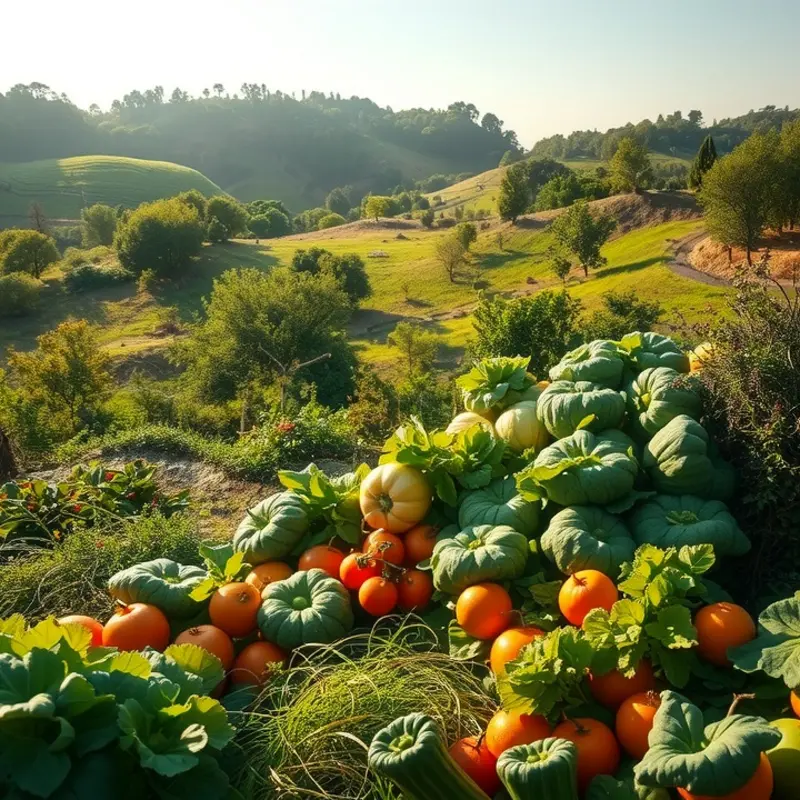The evolving landscape of wellness is shining a light on hydration-based diets, emphasizing simple, practical solutions for overall well-being. As more people seek balanced approaches to nutrition, hydration emerges not just as a cornerstone of health but also a key player in modern diet trends. This article dives into the foundational elements of hydration-focused eating, offering insights on how water intake can enhance your dietary habits and overall vitality.
Hydration as the Cornerstone of Nutrition

Water is essential for every physiological process in our bodies. It is the medium through which nutrients and oxygen are transported to cells, and waste products are eliminated. Without adequate hydration, even the most balanced diet falls short of its potential. Consider the importance of the water you consume as equal to the nutrients you ingest.
Hydration influences functions such as digestion and metabolism. Water acts as a lubricant for joints, a cushion for organs, and a temperature regulator. Dehydration can impair both physical and mental performance, leading to fatigue, confusion, and muscle cramps. Drinking enough water can enhance cognitive function, which underscores its essential role in overall well-being.
The science of hydration is linked to our internal balance or homeostasis. Our bodies carefully regulate fluid balance, constantly adjusting to maintain equilibrium. When our intake is inadequate, the body pulls water from cells, impacting their function. Therefore, ensuring consistent water consumption supports cellular efficiency.
A practical approach to improving hydration involves a few simple strategies:
-
Carrying a Water Bottle: Having water on hand encourages frequent sipping, increasing overall intake.
-
Scheduled Intake: Set reminders to drink water at regular intervals throughout the day.
-
Flavored Water: Infuse water with slices of citrus or herbs for a refreshing change.
-
Tracking Consumption: Use apps or journals to monitor your daily intake, aiming for about 2 to 3 liters, depending on individual needs and activity levels.
-
Substituting Water for Sugary Drinks: Opt for water instead of soda or energy drinks, reducing sugar intake while staying hydrated.
Incorporating hydration into your dietary habits doesn’t need to be overwhelming. It can be as simple as choosing water as your primary beverage. Recognize the signals of thirst early and respond swiftly to maintain proper hydration.
For those embracing special diets, awareness of water content in food can further support hydration goals. For example, fruits and vegetables are excellent sources of water. Additionally, adapting meal preparation strategies, such as batching, can help incorporate hydration-friendly foods seamlessly into your routine. For tips on meal prep, exploring practical ingredient batching can offer helpful insights.
While the task of consistently hydrating might seem elementary, its impact is profound. Prioritize hydration as the cornerstone of your nutrition strategy, and experience the enhancement of your body’s performance and vitality as you seamlessly integrate it into your lifestyle.
Creating a Balanced Hydration-Based Meal Plan

Crafting a meal plan focused on hydration involves more than just sipping water. It requires the incorporation of hydrating foods rich in electrolytes and essential nutrients. The goal is to ensure that each meal not only quenches thirst but also supports overall health. Start by integrating a diverse range of colorful fruits and vegetables, as these are naturally water-dense and packed with vitamins.
Begin your day with a breakfast smoothie that blends water-rich fruits like watermelon or cucumber with leafy greens such as spinach. The greens add fiber and nutrients without compromising hydration. For an energizing twist, include a source of healthy fat, like avocado, which complements the hydrating power of these fruits.
Lunch should focus on crisp salads featuring high-water-content vegetables such as lettuce, tomatoes, and bell peppers. Enhance these with protein sources like grilled chicken or chickpeas, while avoiding heavy dressings that might detract from the meal’s hydrating properties. Instead, try a squeeze of lemon juice or a drizzle of olive oil infused with herbs.
For dinner, consider soups and stews made with broth as the base. These not only serve as a fantastic way to incorporate more fluids but also allow you to slip in a variety of vegetables and proteins. Opt for nutrient-dense options like sweet potatoes and lentils, which absorb broth while adding texture and depth.
To complement these meals, snacks should also keep hydration in mind. Fresh fruit, such as oranges or berries, makes for a refreshing option. Alternatively, yogurt provides hydration while delivering probiotics, and for those avoiding dairy, consider exploring non-dairy probiotic alternatives.
Incorporating teas and infusions between meals is another strategy to boost hydration. Herbal teas provide subtle flavors and health benefits, such as calming chamomile or antioxidant-rich hibiscus. Avoid caffeinated options when aiming to maximize hydration, as caffeine can be diuretic.
Stay mindful of ingredients that might dehydrate. Processed foods high in sodium can counteract hydration efforts. Instead, seasoning with herbs or spices can enhance flavor without overloading dishes with salt.
Adopting a hydration-based diet doesn’t require rigid rules. It’s about making mindful choices that incorporate water-rich foods seamlessly into your lifestyle. By creatively utilizing these foods, you can maintain hydration, enjoy diversified nutrition, and relish flavorful meals.
Final words
Embracing a hydration-based diet can illuminate a straightforward yet effective path to improved well-being. By recognizing the essential role hydration plays not only in weight management but also in overall health, individuals can make informed choices that resonate with their lifestyle. Incorporating more water-rich foods and maintaining adequate hydration can lead to elevated energy levels, enhanced brain function, and better digestion. Whether through refreshing fruits, engaging recipes, or mindful sipping, the journey towards better hydration can be both enjoyable and fulfilling. Start now to explore these beneficial practices!








